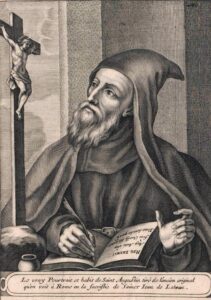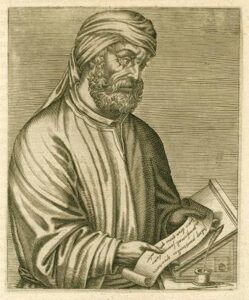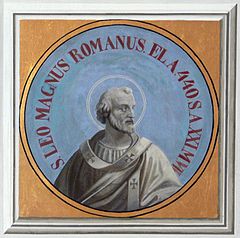Sometimes God puts what you need right in your hands, even before you know you need it. I was killing time in a Goodwill bookstore and somewhat randomly picked up a 1999 edition of The Fathers of the Church, happily still in print, by Mike Aquilina.

Now, I had thought the Church Fathers were a bunch of high-IQ guys who lived in the desert or in secluded monasteries contemplating theology, apart from the cares of the world. How wrong that is! Yes, the Fathers were by and large a wise and brilliant lot. St. Augustine and Origen, to name but two, were among the most intellectually gifted people ever to walk the earth. Nevertheless, brilliance and wisdom were only a part of what made these men so important and influential. As important or more important were their courage, faith and pure love of God.
The Fathers were not ivory tower intellectuals. They were deeply involved in the affairs of the day, usually fighting against incredible odds to preserve and defend the Catholic faith against one enemy after another. Some were primarily thinkers; others, doers. Some were socially adept, politically connected and aristocratic; others were oddball loners who came out of nowhere. Some eagerly accepted their leadership roles; others were dragged kicking and screaming into their appointed roles. But they all made huge contributions that continue to have impact.

From the time of the Apostles, Christians had enemies aplenty, and powerful ones. Officially starting with Nero in 64 A.D., Roman emperors launched one Christian persecution after another — for three centuries. Typically the strategy was to brutally kill the intellectual and institutional leaders of the Church, believing the followers would drift away. The early Fathers were targets. They not only had the courage to put their lives on the line by speaking out for the faith, they welcomed the opportunity to follow the example of Jesus and die for the faith. The persecutions backfired: The number of Christian followers rose with every onslaught. Tertullian, a lawyer and particularly combative Father, accurately taunted Rome: ” The blood of the Martyrs is the seed of the Church.”
In 313 A.D. Emperor Constantine finally called off the dogs and made peace with the Christians (now a majority of subjects within the Roman Empire), ending centuries of terror. But the minute this brutal challenge disappeared, another one sprung up to take its place: Arianism, a heresy that denied the divinity of Jesus Christ. This was a big deal in the streets, not just an intellectual debate among theologians. Arianism attracted adherents among bishops, emperors and other influential political and Church leaders, splitting Christians into two bitterly hostile camps. This situation resulted in people being suppressed, banished and killed. Church Fathers, often from exile or in the hopeless minority, risked life and limb again to argue for orthodoxy, and ultimately, by the strength of their character as well as their arguments, won out. Arianism lingered for centuries and slews of other heresies arose, but thanks to the Fathers (along with many other amazing men and women) the faith was preserved.
Interestingly, despite all of this spiritual combat, the Fathers were anything but defensive or discouraged. No bunker mentality to be found. The Fathers were brimming with confidence, joyful, humbled and honored to serve God. So lacking as we are today in faith and confidence and joy, it is a pleasure and inspiration to see what it takes to rise to any occasion. The Fathers continue to teach, centuries later.
The book is written for the everyday reader, with short historical synopses of the four time periods in which the Fathers lived, biographical sketches of prominent Fathers within each time period, and short, representative excerpts of their writings. All in all, it gives you a good picture of who these men were, why they were important, why they were effective, and why their example matters today.

From their love of God sprung all the virtues of the Fathers. The clarity of their ideas, the persuasive power of their rhetoric, their fortitude, their self-sacrifice, their humility, their willingness to stand firm in their belief in the face of intense worldly pressures of all kinds, provide the inspiration and example every Christian (and for that matter, everyone else) needs to weather whatever storms may be coming our way. Aquilina quotes St. Leo the Great:
“By becoming flesh, the Word so united the Divine Nature with the human that, by lowering His Nature with the human that, by lowering His Nature to the uttermost, He has raised our nature to the highest.”
(Image credits – Wikimedia Commons, Wikimedia Commons, Wikimedia Commons)

Berrmot,
Thanks for the overview and explanation. As a “cradle Catholic” I always thought of the Church Fathers as a bunch of brainiacs who sat around and argued religious nuances with one another.
Keep writing. You are always interesting.
Bill
Thank you for the encouragement, Bill. It seems as though we both had the same misconception about the Fathers.